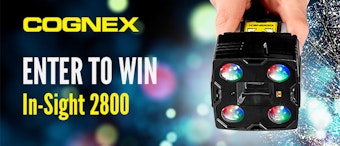
狮子啤酒厂, Wilkes-Barre, PA, was encountering some problems with excess moisture on the bottling lines. When its malt beverages exited the pasteurizing tunnel and were conveyed to the labeling station, soapy water was sprayed onto the conveyor belts for lubrication. But the soapy water also was coating the bottles and causing problems with label application. Some of the labels were positioned askew or displaying an unsightly bubbling effect. The wet environment also was creating moisture pockets under the bottle crowns, which sometimes led to discoloration around the crowns.
狮子维护负责人肯·休斯顿(Ken Houston)指出:“近年来,我们的线速度增加了一倍。我们每分钟生产300瓶,现在我们每分钟高达600至700瓶。”狮子的生产率提高使干燥挑战更大。四行紧密包装的7,12-,16瓶和24盎司的瓶子各都设计为700 bpm的运行Harland((www.harlandamerica.com)标签。并且有重复的标签关闭,以解决弯曲和起泡的标签困难。
Of the four bottling lines, three were using air comb-type air nozzles and compressed air to blast off bottle moisture, with little effect. Houston notes, “The problem with wet bottles had been going on for some time. We tried air nozzles, vortex nozzles. Some worked a bit better than others, but nothing solved it. We use about 200 cubic feet per minute total of compressed air for all the lines at our facility. But even with 50 horsepower of compressed air, we don’t have enough air to dry bottles effectively at our new higher line speeds.”
更好的空气量
As part of the brewer’s ongoing investment in adopting new technologies, Houston contacted Chris Pasquali at manufacturers’ representative agency技术产品和服务公司。((www.fluidproducts.com) to discuss possible solutions to the moisture problem.
在审查了这种情况之后,帕斯夸里(Pasquali)得出结论:“第四行的声音空气系统是他们拥有的最佳系统。我发现Sonic系统的表现压缩空气系统是由于它们传递的空气的体积和干燥性。与压缩空气相比,我们可以以同等成本输出更多的体积。更多的体积等于能够处理更快的线路速度和更大的区域。而且,特殊的空中刀设计有助于保持空气在目标上的“刀状”精确施用的出口空气速度。”
但是,狮子在建立本地声音表示之前已经购买了单个声音系统,气刀的方向并不理想。帕斯夸里(Pasquali)说:“通过提出一些小小的定向变化,并更有效地将空气从鼓风机到刀(较少的弯曲软管),其性能提高了足以满足其需求。设定运营和维护成本,声音系统可以加速回报时间,尤其是随着电力成本的增加。”
因此,狮子决定从声音空气系统((www.sonicairsystms.com) for the remaining bottling lines. Each system uses a 20-HP motor, two 42-in-long side air knives, and two 6-in crown air knives. Lion placed these systems in an atypical position—above the line. “We hang the blowers above because real estate is extremely important to us,” explains Houston.
In addition, Lion installed optional acoustical enclosures to address noise concerns, keeping sound levels under 80 decibels at a distance of one meter (3.3 ft).
Houston sums up, “While Sonic equipment saves us maintenance on the air systems for sure, our choice was labeling-quality-related. The bottles are a lot drier than with compressed air.”































